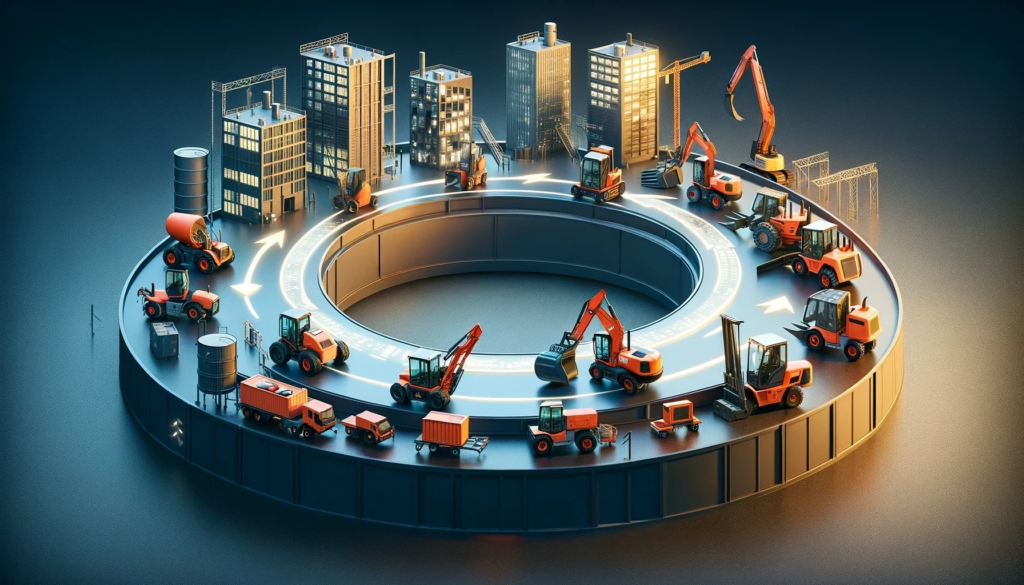Future-Proofing the Rental Equipment Industry: Strategic Modernization and Continuous Improvement
TLDR
Digital transformation doesn’t have to be a big integration and tear out, it can be small incremental improvements and even replacing a spreadsheet. These smaller updates will help drive culture and successful future-proofing.
The Rental Equipment (RE) industry is pivotal in supporting a vast array of sectors, including construction and manufacturing. However, to maintain relevance and competitiveness, it’s crucial for businesses within this industry to embrace modernization. This article delves into essential areas such as modernization, process transparency, leadership, succession planning, and fostering a culture of continuous improvement.
Digital transformation doesn’t have to be a big integration and tear out, it can be small incremental improvements and even replacing a spreadsheet, to drive the following:
1. Embracing Modernization with Technology
Modernizing operations in the rental equipment industry can significantly enhance efficiency, customer satisfaction, and profitability. The big ERP integrations are SAP Business One, Microsoft Dynamics, or Oracle NetSuite, but these aren’t the only way. Modernizations can also be strategic improvements like using Hubspot CRM or SalesForce that increase capabilities in a particular initiative .
For those requiring more tailored functionalities, low-code platforms such as Microsoft Power BI offer the tools to develop custom reports without the need for deep programming expertise. These platforms allow businesses to craft applications that precisely meet their unique operational needs, providing a perfect blend of customization and efficiency. Another example for account messaging would be Salesforce Marketing Cloud or OneSignal that offer a low-code omni-channel communication platform.
There is always a way to move towards your goals. For a hybrid approach, custom middleware can be created to bridge the gap between legacy and modern solutions based on specific business units. Read more here.
Small changes can produce big results- but the areas of highest leverage are often the least obvious
Peter Senge
2. Enhancing Process Transparency
Transparency is key in fostering trust with clients and streamlining internal operations. Implementing advanced tracking and management systems can help rental companies maintain oversight of their equipment’s status, location, and performance. Using RFID technology and IoT devices, businesses can track real-time data on equipment usage and maintenance needs. Equipment tracking can empower your rental desk and give visibility into broader operational systems. From picklists to inventory scanning, technology can drive efficiency and transparency. By having visibility into every part of your business, you can make informed decisions for the future.

3. Leadership and Succession Planning
Future-proofing the industry also necessitates cultivating the next generation of leadership. Leadership development programs focused on mentoring, training, and succession planning are crucial. Digital platforms such as LinkedIn Learning provide access to courses that develop key management and strategic skills.
Succession planning software features tools for tracking employee performance and potential, helping companies prepare for future transitions in key roles seamlessly. This is not just for upper leadership positions but also team leads and all aspects of the organization.
There are also consultants who specialize in leadership development and succession planning that offer onsite training with online programs a well. You can’t manage what you don’t track and that includes employee performance.
4. Building a Culture of Constant Improvement
For rental equipment companies, establishing a culture that prizes continuous improvement can lead to significant advancements in service quality and operational efficiency. Regular training programs, feedback systems, and innovation-promoting practices are essential. Tools like Culture Amp or Workleap can collect employee feedback effectively, highlighting areas for improvement and driving engagement.
Incorporating Agile methodologies can further enhance this culture, making processes more adaptive and responsive to change. Project management tools like Jira or Trello can facilitate the implementation of Agile practices across both technical and non-technical teams.
Conclusion
To remain competitive and prepared for future challenges, businesses in the rental equipment industry must focus on modernizing their operations, enhancing transparency, and preparing for future leadership while cultivating an innovative organizational culture. By strategically integrating software and technology solutions companies can transform these key areas to achieve greater efficiency and readiness for the dynamic market landscape. Embracing these changes is not just about technological adoption but reshaping business practices for sustained success in a rapidly evolving industry. It doesn’t have to be the big integration either, it can be small incremental steps to not be left behind.
Schedule a virtual coffee chat
To learn more about your opportunities, competitiveness, and how you can take advantage of your opportunities from our point of view.